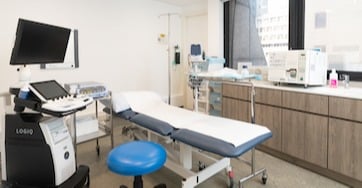Written by: Dr Tim Trodd (Functional Medicine)
A Functional Medicine approach to Autism is also known as the Biomedical treatment of Autism.
Autistic Spectrum Disorder / ASD includes Autism, Asperger’s Syndrome and Pervasive Developmental Disorder. In this article, I will use ASD throughout.
ASD is a rapidly increasing global problem of huge proportions. More than one in 100 children is now diagnosed with ASD. Functional Medicine treatment is an evidence based and individualized long term program to optimize development.
Autism was first described by Dr Asperger in the 1950’s. This represented a new disease, or a rapidly increasing one. Doctors in the past 100 to 200 years were at least as clinically skilled as we are today. In the 1930’s they described Phenyl Ketonuria, a disease with similar manifestations to ASD and a prevalence of 1 in 15,000 births, it is not plausible that they missed a similar disease that is greater than one hundred times more common.
At that time it was recognized that ASD is a disorder of communication, behavior and socialization, the biological process behind that disorder was unknown. This is what I call a reflective diagnosis, a parent describes their child with a problem of speech, behaviour and socilaistaion, has an assessment and gets a diagnosis of ASD, which means the same. In part because there is a tendency for the medical profession to classify diseases as either physical or psychological, but all disease must have an underlying physical process. Psychology is not magic, there are specific underlying physical processes that can be altered for a different psychological outcome, this is after all, how drugs such as Ritalin and antidepressants work.
The biological processes behind ASD are being gradually explored and documented, which forms the basis of a Functional Medicine approach. The fundamental problem with studying the biology of neurological disease is that the brain is the most complex structure in the universe and also hidden in a bony box. Even functional MRI is low resolution compared to the cellular processes. However, we do know from postmortem studies that the brains of ASD children have increased oxidative stress and inflammation. Numerous studies have found physical differences between ASD children and neurotypical children.
The approach to treating ASD is to correct any nutritional and GI problems first. I will always put a child on a healthy Gluten and Casein Free (GFCF) diet. This has been shown to have benefit and if not done can block progress.
My standard nutritional tests are for Iron, Vitamin D and other elements such as Zinc, Magnesium and Selenium. Deficiencies are very common. In addition, the element panel covers the heavy metals including Arsenic, Lead and Mercury.
The treatment of ASD is a program that will need a long term approach and fine tuning. As with any long term medical program it has to be sustainable, and that will vary from family to family. That is 100% okay and it must be acknowledged. The worst case is that the family tries for a few weeks and than gets overwhelmed and stops. They are unlikely to start again.
So start slowly and build up the program and see where this goes. One child may manage 6 supplements easily and another struggle with two, you just don’t know until you try.
After we have started on the basic program we can consider other treatments. Is there a particular inflammatory process with this child? do they have significant exposure to toxins? Are we going to have to do deep level testing of their microbiome?
FAQs
- What age should we start?
The younger the better. Any therapy for ASD is more effective in younger children. It is a shame that diagnosis is often delayed by waiting lists, but children who are clearly struggling with communication or socialization can start right away. There is no downside to improving general health.
- What about cost?
An initial Functional Medicine assessment and testing can cost around $10,000, which is out of reach for many in Hong Kong. However, the ASU study used a treatment plan that did not require testing and many of these supplements are readily and cheaply available.
- How often do we need to visit?
Visits are monthly at the beginning and can then stretch out to up to every 3 months.
- Will you be able to take blood?
Yes, nearly always. We use EMLA cream so the blood draw is painless ask the child to sit on a parents lap and we distract the child. The blood draw is almost always easier than expected. If parents are confident and reinforce that the test will be quick and painless it helps a lot. We usually need to repeat the tests in 3 to 6 months.
- How does this fit in with our other therapies?
Functional Medicine works well with other therapies such as ABA and ST. One analogy is that of a computer, the Functional Medicine works on the hardware and the therapy helps the software.
- What nutrients do you test for?
We test for Iron and Vitamin D locally. In addition we send of an element panel that includes key nutrients, such as Zinc, Selenium, Magnesium and Lithium, in addition the panel tests for heavy metals including Arsenic, Lead and Mercury. We also order a Methylation Profile which looks at biochemistry that is known to be disordered in ASD and includes the effectiveness of Vitamins B12, Folate and B6. Methylation is key for neurological health, detox and antioxidant biochemistry.

 Central General Practice
Central General Practice
 Repulse Bay
Repulse Bay
 Clearwater Bay
Clearwater Bay
 BodyWorX Clinic
BodyWorX Clinic
 Central Specialist Clinic
Central Specialist Clinic
 MindWorX Clinic
MindWorX Clinic
 Partner Clinics
Partner Clinics
 Family Clinic
Family Clinic
 OT&P Annerley Midwives Clinic
OT&P Annerley Midwives Clinic

